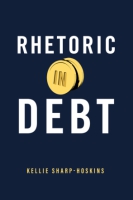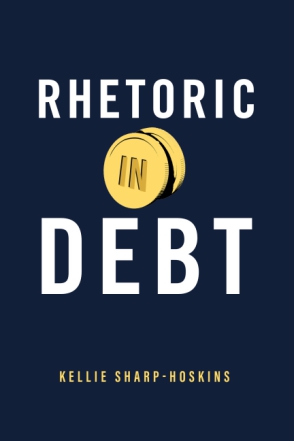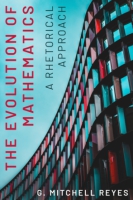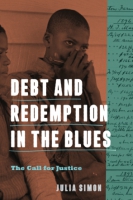Rhetoric in Debt
Kellie Sharp-Hoskins
“An authoritative reading of debt’s disastrous function at a period of persistent global inequality and deepening economic misery. For rhetoricians turning toward these concerns, it is indispensable reading.”
- Unlocked
- Description
- Reviews
- Bio
- Sample Chapters
- Subjects

An Open Access edition of Rhetoric in Debt is available through PSU Press Unlocked. To access this free electronic edition click here. Print editions are also available.
Drawing on scholarship from economics, accounting, and critical rhetoric and social theory, Kellie Sharp-Hoskins critiques debt not as an economic indicator or a tool of finance but as a cultural system. Through case studies of the student-loan crisis, medical debt, and the abuses of municipal bonds, Sharp-Hoskins reveals that debt is a rhetorical construct entangled in broader systems of wealth, rule, and race. Perhaps more than any other social marker or symbol, the concept of “debt” indicates differences between wealthy and poor, productive and lazy, secure and risky, worthy and unworthy. Tracking the emergence and work of debt across temporal and spatial scales reveals how it exacerbates vulnerabilities and inequities under the rhetorical cover of individual, moral, and volitional calculation and equivalency.
A new perspective on a serious problem facing our society, Rhetoric in Debt not only reveals how debt organizes our social and cultural relations but also provides a new conceptual framework for a more equitable world.
“An authoritative reading of debt’s disastrous function at a period of persistent global inequality and deepening economic misery. For rhetoricians turning toward these concerns, it is indispensable reading.”
“To those interested in affect studies, this book offers an original application of two concepts: stickiness and circulation. To those interested in debt, this study offers a close analysis of how indebted subjectivity is created through everyday assumptions and rhetorical artifacts. Rhetoric in Debt gets to the granular level, explaining not only how indebted subjectification happens but also how we might look for indebted subjectification in other places. To those interested in the rhetoric of economics, this book offers a new topic and a fresh analytical method.”
Kellie Sharp-Hoskins is Associate Professor of Rhetoric and Professional Communication at New Mexico State University. She is coeditor of Kenneth Burke + The Posthuman, also published by Penn State University Press.
Download a PDF sample chapter here: Introduction
Mailing List
Subscribe to our mailing list and be notified about new titles, journals and catalogs.









